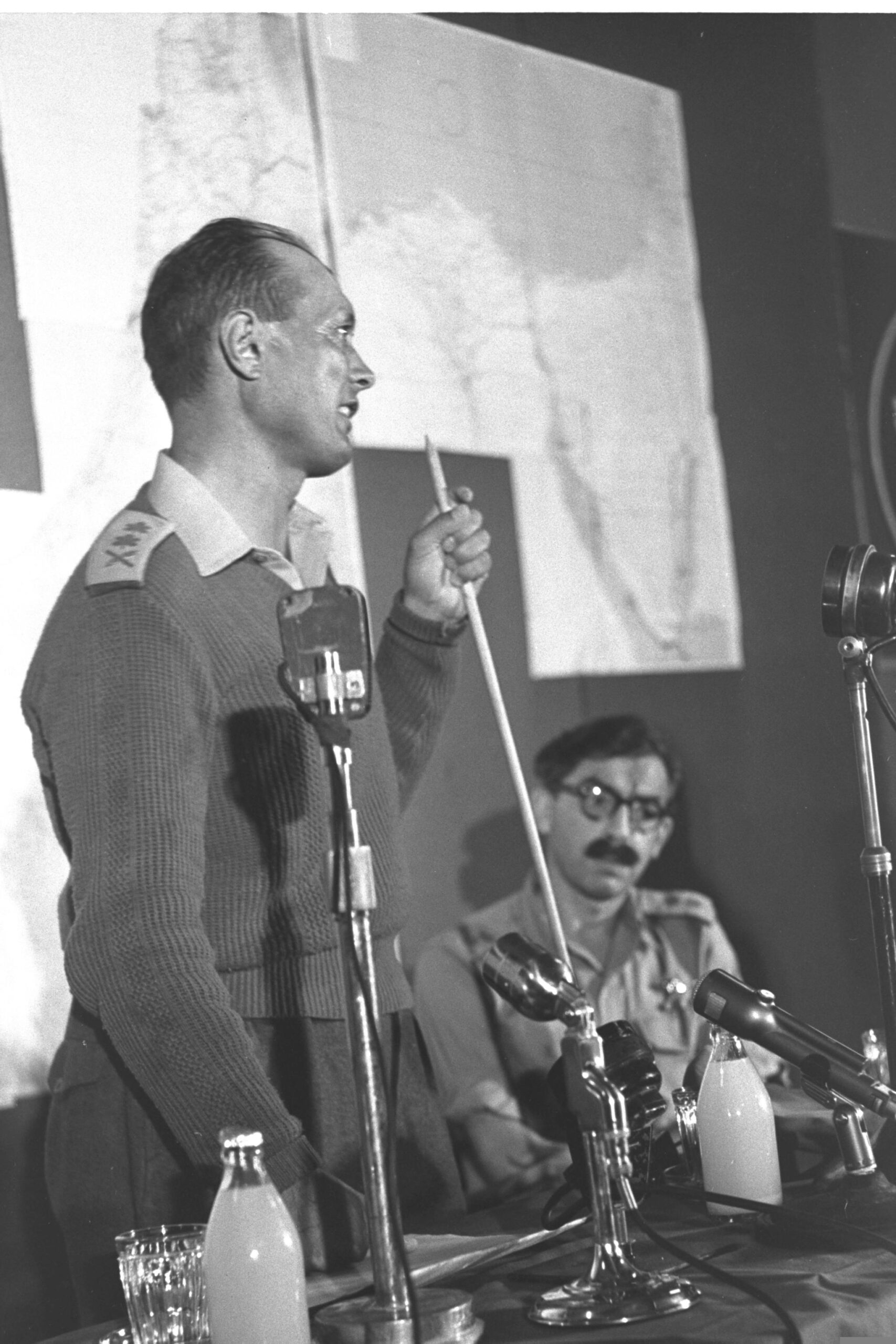
November 14, 1956
The Knesset debates Prime Minister David Ben-Gurion’s announcement that Israeli troops will withdraw from Sinai after the 1956 Suez War.
A week earlier, Ben-Gurion announced on Israeli radio that Israel would withdraw its troops from the Sinai after the 1956 Suez War. The brief war had been a collusively planned operation between Britain, France and Israel aimed at toppling Egyptian President Nasser and securing the Suez Canal for international shipping. In just five days, Egypt had lost all of Sinai to Israel.
President Dwight D. Eisenhower, who was re-elected in the midst of the hostilities, sent a letter to Ben-Gurion, stating, “I must say, Mr. Prime Minister, that the United States views these reports [that Israel did not intend to withdraw from Sinai], if true, with deep concern. … It is our belief that as a matter of highest priority peace should be restored and foreign troops, except for United Nations forces, withdrawn from Egypt, after which new and energetic steps should be undertaken within the framework of the United Nations to solve the basic problems which have given rise to the present difficulty.”
Ben-Gurion read the entirety of Eisenhower’s letter as part of his radio address and included his reply to the president, in which he stated, “In view of the United Nations resolutions regarding the withdrawal of foreign troops from Egypt and the creation of an international force, we will upon the conclusion of satisfactory arrangements with the United Nations in connection with the international forces entering the Suez Canal area withdraw our forces.”
Despite Ben-Gurion’s assurances of a withdrawal to both the United States and the Israeli public in his Nov. 8 radio address, Israeli troops are still in place when the issue is brought up in the Knesset by two different members Nov. 14.
First, Moshe Sneh, a member of Maki, the Communist Party, raises objection not just to the delay in withdrawing the troops, but also to the entire operation and government policy toward “areas of Palestine which are outside the State of Israel” as a whole. Sneh accuses the government of ignoring “the existence of the Palestinian Arab people of 1 million individuals, disregard(ing) the bitter fate of homeless refugees and overlooking its right to national existence.” Sneh calls on the Knesset to forge a new path toward mutual agreement. His plea is voted down, 76-3.
Also speaking in the Knesset is Aryeh Ben Eliezer of the Herut party. Ben Eliezer criticizes the prime minister’s radio address and accuses him of a complete turnaround in regard to his views on Israeli troops in the Sinai. Ben Eliezer says the radio address reversed the decision of the Knesset not to remove Israeli troops, in line with the original position of Ben-Gurion. Ben Eliezer says that without a negotiated peace process, Israel should not withdraw its troops because withdrawal would only embolden Egyptian President Gamal Abdel Nasser. Ben Eliezer points out that the Egyptian leader is acting “as if he were the victor, trying to adapt the U.N. resolutions to his needs and plans, and proving that his plans to attack Israel at some other time are still in effect.”
Ben Eliezer’s motion for a formal debate on the prime minister’s decision is rejected by a vote of 66-13.
Israel ultimately withdraws from Sinai in March 1957, and U.N. troops are put into place. In May 1967, those U.N. monitors are withdrawn at the demand of Nasser, who re-militarizes Sinai. Israel then decides to strike pre-emptively the Egyptian forces that threaten Israel and its oil supply routes to Eilat, launching the June 1967 war.
